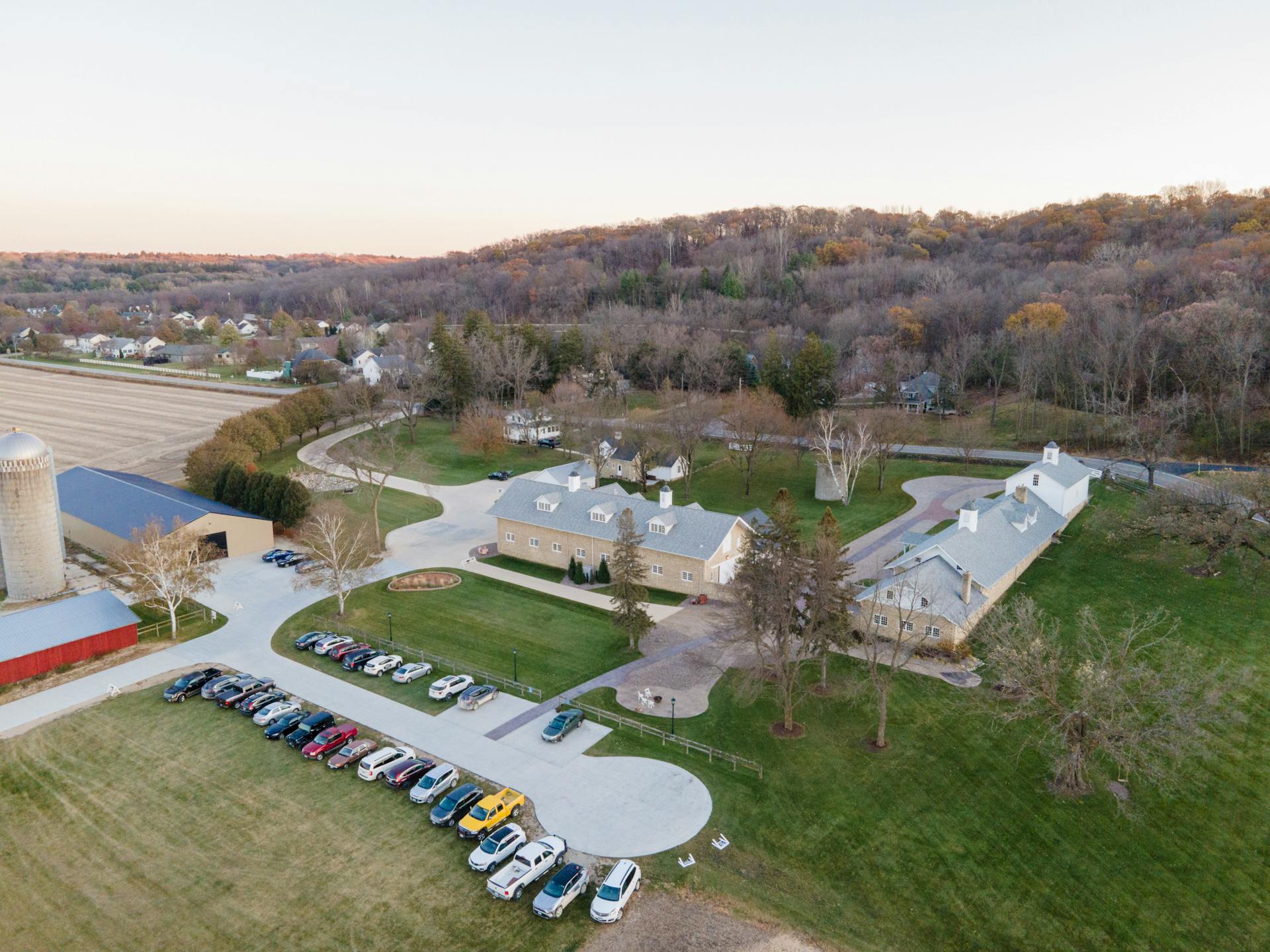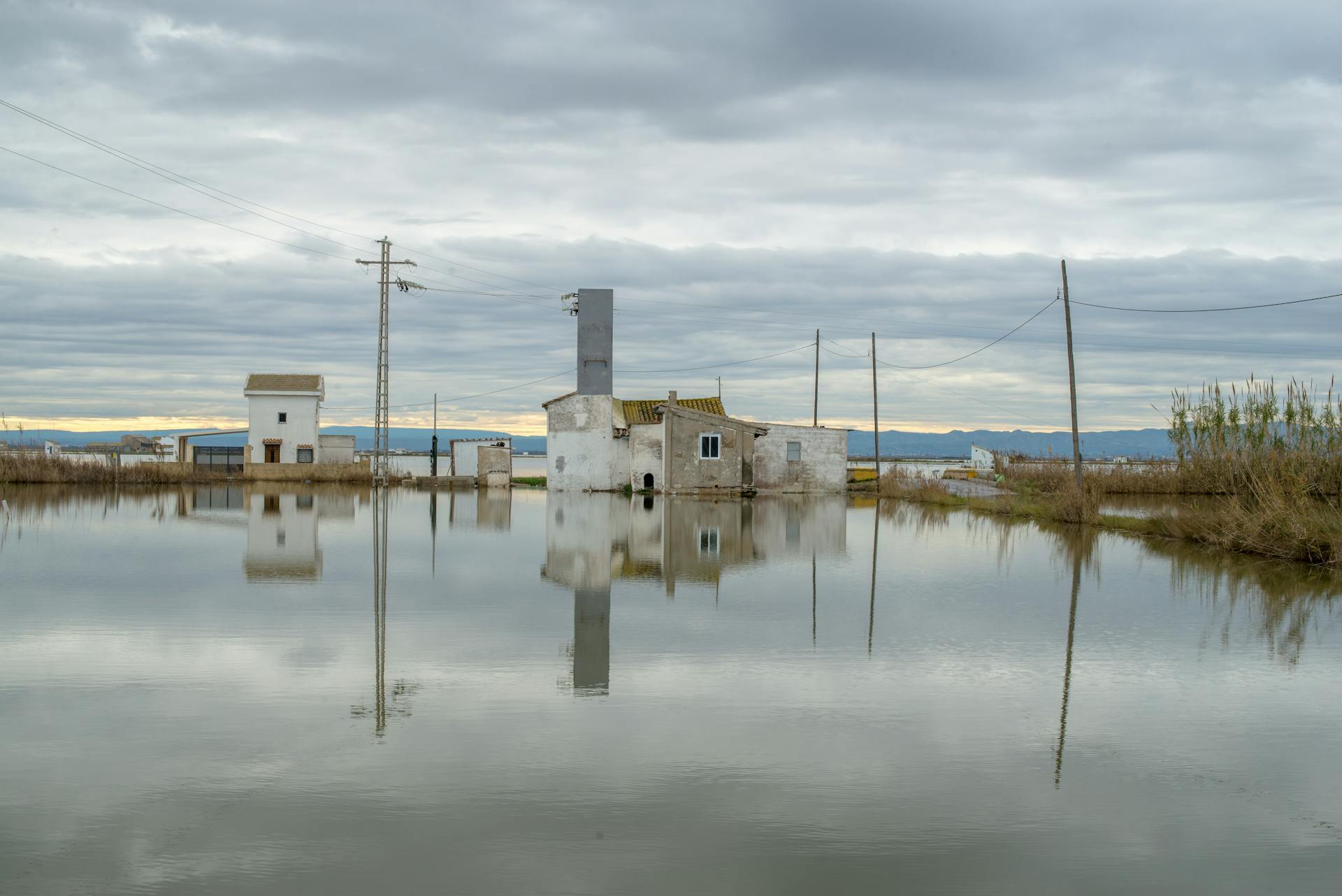
As a homeowner, you likely have outbuildings on your property such as a shed, garage, or barn.
These structures can provide valuable storage and additional living space, but they also pose a risk to your wallet if they're damaged or destroyed.
Outbuildings insurance cover is a type of insurance that specifically protects these structures and the contents within them.
This specialized insurance can help you recover from financial losses in the event of damage or loss.
It's essential to understand what outbuildings insurance cover entails and how it can benefit you as a homeowner.
What Is Outbuildings Insurance?
Outbuildings insurance is designed to cover structures on your property other than your main home, such as garages, sheds, barns, and workshops. These structures need to be declared as separate entities on your standard home policy, but within a high-value home insurance policy, they're often included in the main building definition as long as they're used for domestic purposes only.
The definition of a "home" in high-value home insurance policies typically includes an outbuilding, while the definition of a "building" specifically mentions what type of outbuilding is or isn't covered. Some insurers are more liberal with their definitions, so it's essential to consult your policy wording.
You need to calculate the value of the contents stored in your outbuilding to determine if you need additional insurance. If the collective worth is substantial, it's wise to add it to your high-value home insurance policy by increasing the total sums insured.
Sheds, in particular, are exposed to various risks that can compromise their structural integrity and the items inside. They're often not as resistant to the elements as your main house, so it's crucial to review your current policy or any new policy you're considering to confirm the extent of protection provided for sheds.
Here are some factors to consider when determining if you need outbuildings insurance:
- The value of the contents stored in your outbuilding
- The cost to rebuild the outbuilding
- The risks it could face
You can estimate the value by taking inventory of what's stored in or near the structures and calculating the replacement cost of all items.
Understanding Coverage Limits
Outbuilding coverage typically doesn't provide protection for structures used for business purposes or rented out to tenants.
You may need a commercial policy for these types of structures. Outbuilding coverage may also have limits on the amount of coverage for certain types of structures or property.
For example, there may be a limit on the amount of coverage provided for detached garages or for equipment stored in a shed.
To determine the amount of coverage you need, consider the value of the structures and property you want to insure. Estimate the value by taking inventory of what is stored in or near the structures, then calculate the replacement cost of all items.
Here's a rough guide to help you estimate the value of your outbuildings:
Keep in mind that these are rough estimates, and the actual value of your outbuildings may vary. It's always better to err on the side of caution and overestimate the value to ensure you have adequate coverage.
What Is Coverage?
Understanding Coverage Limits is a crucial aspect of homeowners insurance.
Outbuilding coverage is a type of insurance that provides protection for structures on your property that are not attached to your main house.
This coverage is typically included in most standard homeowners insurance policies.
The specific terms and limits of the coverage can vary depending on the policy and the insurance provider.
Determining Coverage Needs
To determine the amount of outbuilding coverage you need, consider the value of the structures and property you want to insure. You can estimate the value by taking inventory of what is stored in or near the structures.
The replacement cost of these items is a crucial factor in determining coverage needs. Typically, outbuilding coverage is calculated at 10% of the estimated replacement cost of the property.
You can get supplemental coverage for outbuildings with only a small premium increase, so it's worth considering if you have valuable items stored in or near your outbuildings.

The type of structures you have on your property also affects your coverage needs. Outbuilding coverage typically provides protection for structures like detached garages, sheds, barns, and pool houses.
Here are some examples of structures that are usually covered under outbuilding insurance:
- Detached garages
- Sheds
- Barns or other farm structures
- Pool houses or other recreational structures
- Guest houses or other secondary residences
- Gazebos
- Playgrounds
- Decks
- Fences
In addition to the structures, outbuilding coverage may also provide protection for other types of property that are stored inside or near these structures.
Types of Policies and Providers
There are several types of home insurance policies available, and not all are equal. Some provide more coverage than others, and coverage limits may vary.
You can choose from different types of policies, but it's essential to educate yourself about the different options available. Homeowners insurance policies come in three categories, which is why it's crucial to learn more about them.
Purchasing adequate insurance for outbuildings like sheds and garages is paramount, given their value and functional use.
Aviva Private Clients
Aviva Private Clients offers a clear definition of what's covered under their policies.

Their policy definition states that "Home" means the main dwelling, other liveable dwellings and attached buildings at the residence listed in the schedule and owned by you.
Aviva Private Clients considers buildings to include utility pipes, cables, domestic underground and over ground tanks supplying or serving the buildings and within the grounds of the residence.
Types of Policies and Providers
There are various types of policies and providers to consider when it comes to protecting your home and outbuildings.
Some insurance providers, like Covea, offer comprehensive policies that cover not only the main house but also outbuildings, such as garages and sheds.
Covea's Executive Plus policy, for instance, covers the private dwelling, garages, domestic outbuildings, and greenhouses at the risk address.
Buildings insurance is essential to cover the physical structure against unforeseen damages like fire or flooding.
This type of insurance typically covers the main house and any outbuildings, such as sheds and garages.
Home contents insurance, on the other hand, covers the items inside these structures up to a certain value.
If you have a detached garage or shed, you'll likely need both buildings and home contents insurance for full protection.
Regularly reviewing your policy ensures your coverage keeps pace with the value of your assets, especially after adding new structures or making significant purchases.
To potentially lower your insurance premiums and ensure comprehensive coverage, consider improving the security of your outbuildings.
Types of Policies and Providers
Covea Executive Plus and Hiscox 606 are two examples of home insurance policies that cover your private dwelling and outbuildings. These policies typically include a definition of what is considered a "home" and a "building".
A home is defined as the private dwelling, garages, domestic outbuildings, and greenhouses at the risk address(es) shown in the schedule, as per the Covea Executive Plus policy. In contrast, the Hiscox 606 policy defines a home as the private residence at the address shown in your schedule, including the building and outbuildings.

The building definition in the Hiscox 606 policy is more specific, including items such as walls, gates, hedges, fences, paths, terraces, driveways, and patios that are attached to or immediately servicing the structure.
If you have a high-value home insurance policy, it may automatically cover your shed or garage, as mentioned in the Hiscox 606 policy. However, it's essential to review your current policy or any new policy you're considering to confirm the extent of protection provided for sheds.
Typically, home insurance policies will only cover up to a certain amount within an outbuilding, such as £20,000, as mentioned in the Hiscox 606 policy. If the value of the items in your shed or garage exceeds this limit, you may need to consider additional protection.
To ensure comprehensive coverage, it's crucial to regularly review and update your home insurance policy, especially after making significant changes to your property or acquiring new items for your outbuildings.
Frequently Asked Questions
What is considered an outbuilding?
An outbuilding is a separate structure on a property, such as a barn, garage, or shed, that's not attached to the main dwelling. Examples of outbuildings include storage sheds, greenhouses, and detached garages.
Sources
- https://www.armourinsurance.ca/blog/outbuilding-coverage-home-insurance
- https://www.stanhopeinsurance.co.uk/blog/guides/outbuilding-cover-for-high-value-homes/
- https://www.brokerlink.ca/blog/garage-shed-covered
- https://www.coverhound.com/insurance-learning-center/insuring-external-structures-on-your-property
- https://allenportablebuildings.com/insurance-sheds-and-garages/
Featured Images: pexels.com


